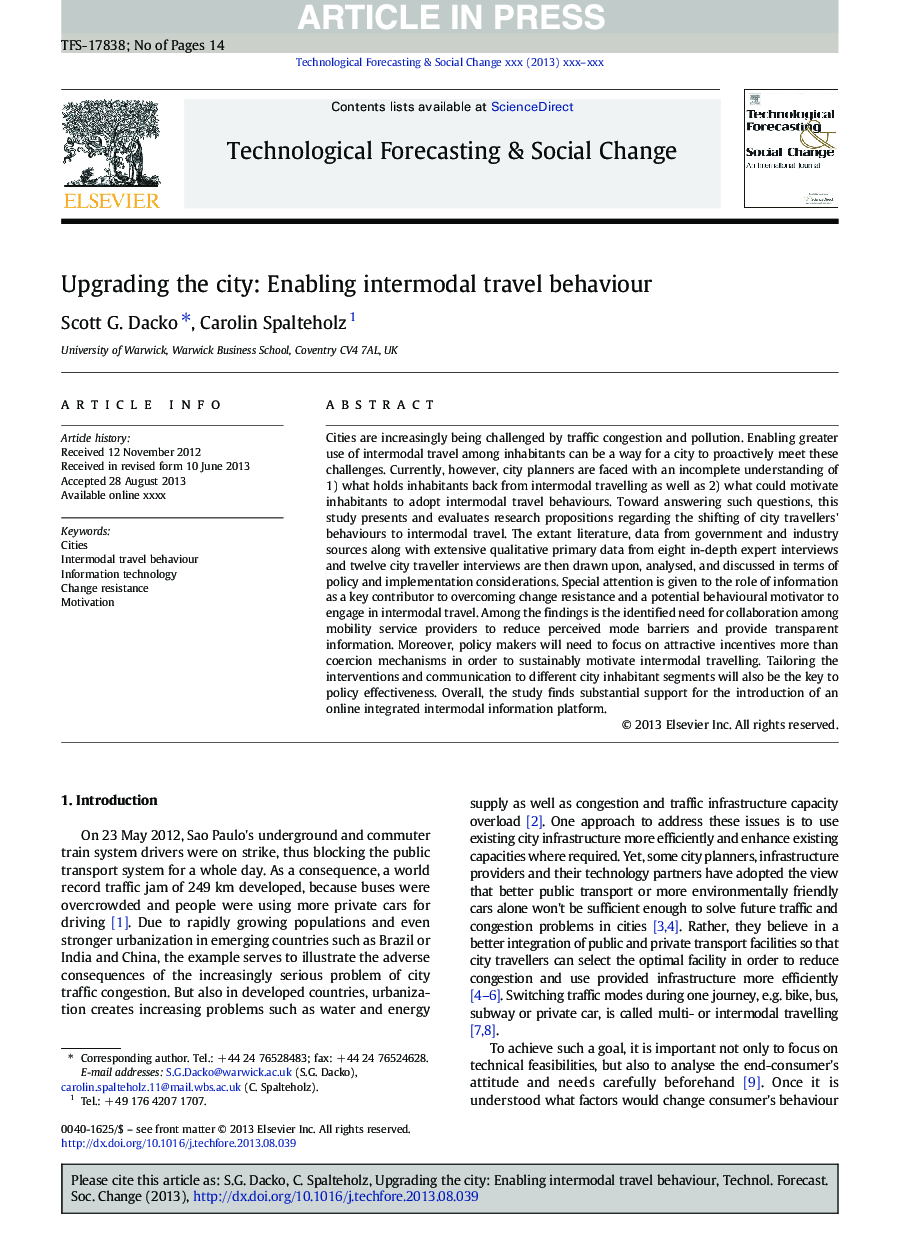| Article ID | Journal | Published Year | Pages | File Type |
|---|---|---|---|---|
| 7257078 | Technological Forecasting and Social Change | 2014 | 14 Pages |
Abstract
Cities are increasingly being challenged by traffic congestion and pollution. Enabling greater use of intermodal travel among inhabitants can be a way for a city to proactively meet these challenges. Currently, however, city planners are faced with an incomplete understanding of 1) what holds inhabitants back from intermodal travelling as well as 2) what could motivate inhabitants to adopt intermodal travel behaviours. Toward answering such questions, this study presents and evaluates research propositions regarding the shifting of city travellers' behaviours to intermodal travel. The extant literature, data from government and industry sources along with extensive qualitative primary data from eight in-depth expert interviews and twelve city traveller interviews are then drawn upon, analysed, and discussed in terms of policy and implementation considerations. Special attention is given to the role of information as a key contributor to overcoming change resistance and a potential behavioural motivator to engage in intermodal travel. Among the findings is the identified need for collaboration among mobility service providers to reduce perceived mode barriers and provide transparent information. Moreover, policy makers will need to focus on attractive incentives more than coercion mechanisms in order to sustainably motivate intermodal travelling. Tailoring the interventions and communication to different city inhabitant segments will also be the key to policy effectiveness. Overall, the study finds substantial support for the introduction of an online integrated intermodal information platform.
Related Topics
Social Sciences and Humanities
Business, Management and Accounting
Business and International Management
Authors
Scott G. Dacko, Carolin Spalteholz,
